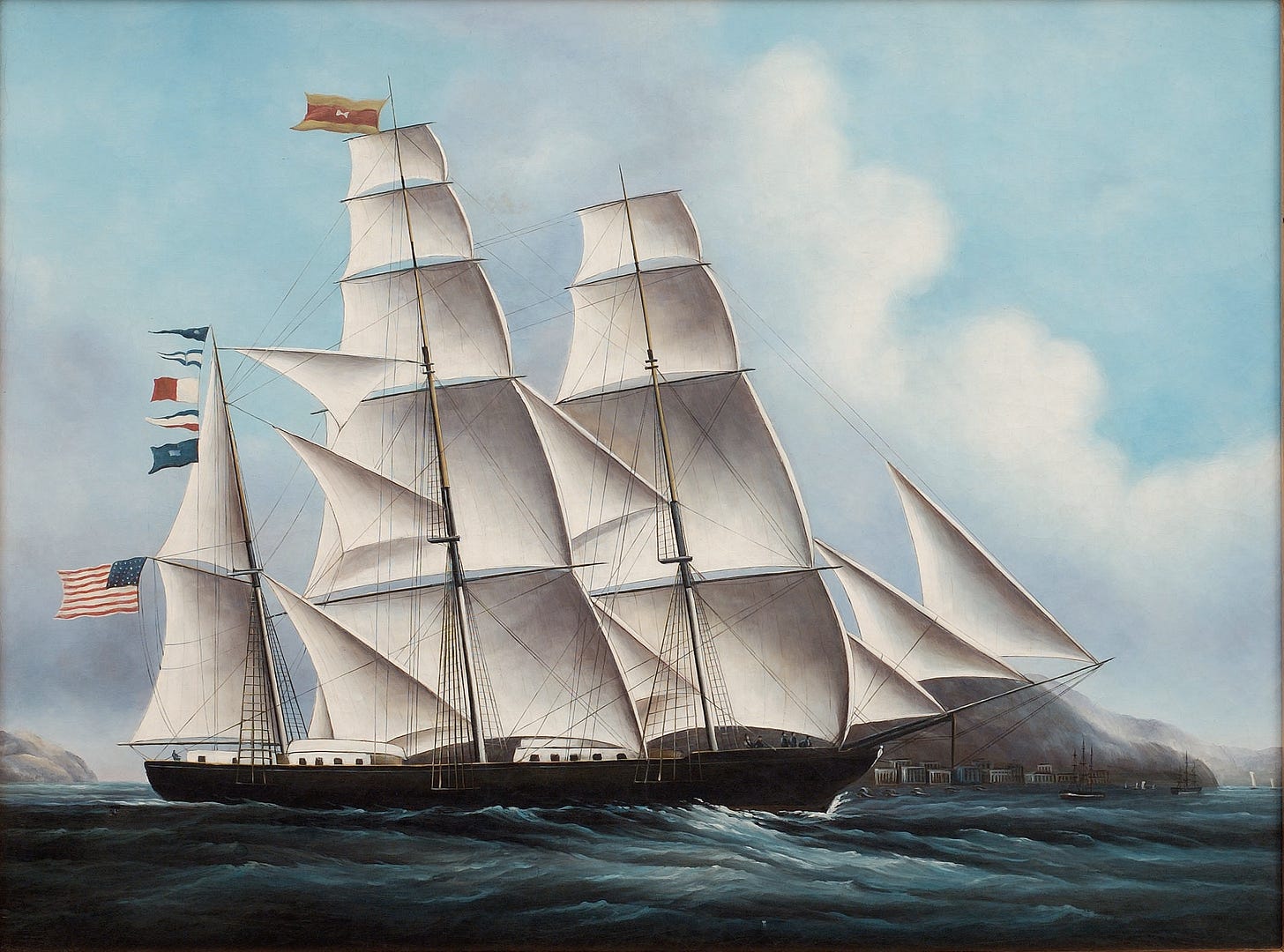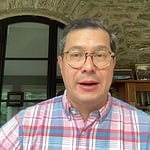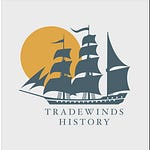In this episode, I describe the unique relationship between the Chinese merchant Wu Bingjian (known by Westerners as “Houqua”) and the small group of Americans who lived in Canton in the first half of the 1800s. Worth an estimated $25 million at his peak (making him one of the world’s richest men), Houqua gave permission to his protege John Murray Forbes to invest a sizeable chunk of his fortune in emergent American enterprises.
He also gave each of his 50 or so “American sons” a portrait of himself. Fifty years before the first international phone call, and two hundred years before Zoom, these portraits gave Houqua the feeling that he was still keeping an eye on his charges, halfway around the world from China.
For John Murray Forbes, Warren Delano II, and Abiel Abbot Low, these portraits signaled to family and friends that they were part of one of the most select clubs on earth, and these objects remained treasured possessions for generations.
In their later years, the “Canton coterie” never forgot Houqua’s advice on business and negotiation.
Their descendants also carried on the tradition of drinking Hu-Kwa tea, a lapsang souchong variety named in honor of the Canton merchant.
To learn more about Houqua and the American China trade, read Barons of the Sea (Simon & Schuster, 2018).















Share this post